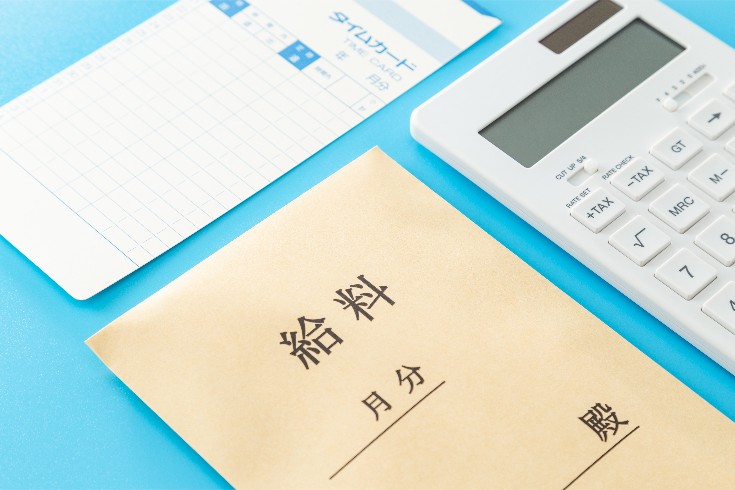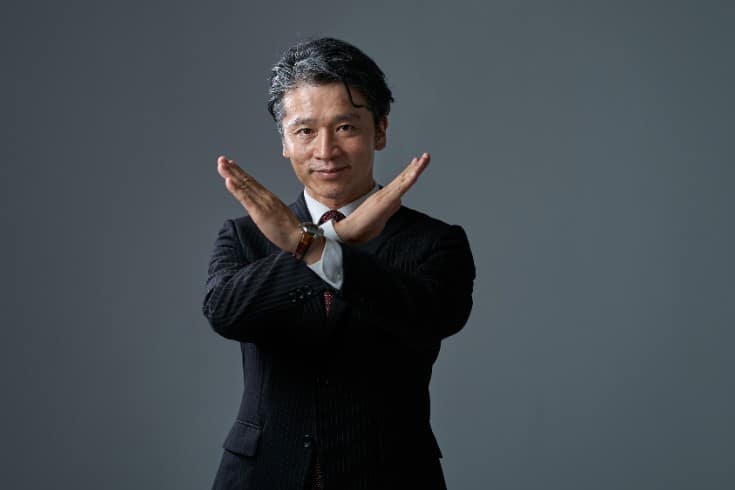Legal Framework for Wage Payment under Japanese Labor Law: Perspectives on Compliance and Risk Management

In conducting business in Japan, compliance with legal regulations surrounding wage payments is not merely an obligation of labor management; it is a critical component of corporate governance that underpins the sustained growth and maintenance of social credibility for a company. Non-compliance with wage-related laws can lead not only to the obligation to pay unpaid wages but also to the possibility of investigations and corrective recommendations by the Labor Standards Inspection Office. Furthermore, in modern society, information dissemination by employees or former employees through social media can severely damage a company’s image, complicating the acquisition and retention of top talent and significantly impacting business operations. The Japanese legal system protects wage claims through a multi-layered approach, using several laws to stabilize the lives of workers. Specifically, the ‘Japanese Minimum Wage Act’ sets the minimum standards for wages, the ‘Japanese Labor Standards Act’ governs the basic principles of payment methods, the ‘Japanese Civil Code’ ensures the priority of claims, and the ‘Act on Securing Payment of Wages’ safeguards payments upon retirement. These laws do not function independently but interact with each other to form a comprehensive protection system. Therefore, it is essential to fully understand that a violation of one law may unintentionally induce violations of other laws, amplifying a company’s legal and financial risks. This article will explain the legal framework for wage payments in Japan and the obligations employers must adhere to, with specific references to the main laws and judicial precedents.
The Legal Framework of the Minimum Wage System in Japan
The Japanese Minimum Wage Act aims to stabilize the livelihood of workers by setting the minimum amount of wages that employers must pay. This law stipulates that the minimum wage amount cannot be reduced by mutual agreement between the parties, as it has the force of a mandatory provision.
Article 4, Paragraph 1 of the Japanese Minimum Wage Act mandates that employers must pay wages that are at least equal to the minimum wage to workers who are subject to the minimum wage. Furthermore, Paragraph 2 of the same article states that any agreement between a worker and an employer for wages below the minimum wage amount is invalid, and the contract is deemed to have stipulated the minimum wage. This means that the legal minimum standards are compulsorily applied regardless of the worker’s consent.
There are two types of minimum wages: the “regional minimum wage,” which applies to all workers regardless of industry or occupation, and the “specific (industry-specific) minimum wage,” which applies to workers in certain industries. If a worker is subject to both, the higher of the two minimum wage amounts will apply.
When determining whether the wages actually paid exceed the minimum wage amount, certain wages must be excluded from the calculation. According to the Enforcement Regulations of the Japanese Minimum Wage Act, wages paid temporarily (such as marriage allowances) or wages paid over periods exceeding one month (such as bonuses) are not included in the calculation of the minimum wage. For monthly or daily wages, the respective amounts are divided by the number of prescribed working hours to convert them into an hourly rate, which is then compared with the applicable minimum wage amount (hourly rate).
If an employer fails to pay wages above the regional minimum wage amount, a fine of up to 500,000 yen may be imposed under Article 40 of the Japanese Minimum Wage Act.
A notable legal case concerning the scope of the Minimum Wage Act is the NHK (Nagoya Broadcasting Station) case (Nagoya High Court judgment on June 26, 2018). In this case, the propriety of unpaid “trial work” performed by an employee who had been on leave due to a mental disorder to assess the possibility of returning to work was contested. The court emphasized the fact that the trial work was conducted under the employer’s supervision and control, and the results (news scripts the employee helped produce) were actually broadcast, indicating that the employer benefited from it. Even if there was a rehabilitative aspect, the court ruled that it constituted “labor” under the employer’s supervision and control and ordered the company to pay wages above the minimum wage amount. This case suggests that activities are subject to the Minimum Wage Act if they are evaluated as being under the employer’s supervision and control, regardless of the contractual name or the parties’ intentions. This has implications for activities conducted under the guise of internships, training, or probationary periods, indicating that an obligation to pay wages may arise based on the actual nature of the work, requiring careful consideration in the design of these systems by companies.
The Basic Principles of the Japanese Labor Standards Act Governing Wage Payments
The Japanese Labor Standards Act establishes fundamental rules for the specific methods and timing of wage payments to protect the livelihood of workers. These principles, stipulated in Article 24 of the Japanese Labor Standards Act, are known as the “Five Principles of Wage Payment” and are one of the most basic norms in Japanese labor management. Violations of these principles may result in a fine of up to 300,000 yen under Article 120 of the same law.
Firstly, there is the “Principle of Payment in Currency.” Wages must be paid in Japanese currency (cash) as a general rule. Payment in kind, such as with company products or gift vouchers, is prohibited in principle. However, exceptions are made for payments transferred to a bank account designated by the worker or to an account of a funds transfer service provider that meets certain criteria (so-called digital payment), provided that the worker’s consent has been obtained.
Secondly, there is the “Principle of Direct Payment.” Wages must be paid directly to the worker themselves to prevent exploitation by intermediaries. Payments to legal representatives such as guardians or voluntary agents with a mandate are not permitted. Exceptions are allowed for payments to a “messenger” who can be socially regarded as equivalent to the person themselves, such as a spouse in the event of illness, or to a third party through a court-ordered garnishment of claims.
Thirdly, there is the “Principle of Full Payment.” The full amount of wages must be paid. Employers are generally prohibited from unilaterally offsetting their claims, such as loans to workers, against wages. Exceptions to this principle are strictly defined, and deductions from wages, such as for rent for company housing, are permitted only if agreed upon in writing with a labor union representing the majority of workers or a representative of the majority of workers (labor-management agreement), in addition to legally mandated deductions (such as income tax and social insurance premiums). The requirement for collective agreement, rather than individual worker consent, reflects the law’s strong intention to protect wages, which are the workers’ living funds, from easy deductions.
Fourthly, there is the “Principle of Payment at Least Once a Month.” To ensure the stability of workers’ lives, wages must be paid at least once a month. Even if an annual salary system is adopted, the annual salary must be divided and paid monthly. However, wages paid on a temporary basis, bonuses, and other similar payments as defined by the Ministry of Health, Labour and Welfare ordinance are excluded from this principle.
Fifthly, there is the “Principle of Payment on a Specific Date.” Employers are also obligated to specify in advance the payday for wages. It is necessary to specify the payment date concretely, such as “the 25th of every month” or “the last day of every month.” Payment dates that vary each month, such as “the third Friday of every month,” or those that allow a range of payment dates, such as “between the 15th and 25th of every month,” are not permitted. This is also an important provision to enable workers to plan their lives with stability.
Priority Status of Wage Claims: Protection Under Japanese Civil Law
Not only labor regulations but also Japanese Civil Law provides robust provisions to protect wage claims. This is known as the “preferential right,” a legal right that allows certain creditors to be paid out of the debtor’s property before other creditors .
Article 306, Item 2 of the Japanese Civil Law stipulates that a “general preferential right” is established over the total assets of the debtor (employer) for claims arising from an “employment relationship.” Naturally, this includes the workers’ wage claims. Furthermore, Article 308 of Japanese Civil Law clarifies that this preferential right exists for salaries .
The effectiveness of this general preferential right is extremely powerful. The priority order when general preferential rights compete is determined by Article 329, Paragraph 1 of Japanese Civil Law, where the preferential right related to employment is given a very high priority, second only to the preferential right for “common benefit expenses” .
This means that even if the employer’s financial situation deteriorates and it becomes impossible to fully satisfy all creditors, the workers’ unpaid wages must be paid preferentially from the company’s total assets before many other debts, such as loans from financial institutions or accounts payable to general trade creditors. This provision elevates the status of wage claims from mere contractual claims to de facto secured claims with priority security interest over the company’s total assets. From the perspective of managers and shareholders, it is crucial to recognize unpaid wages not just as a labor issue or regulatory risk but as a financial liability that must be addressed with the highest priority, impacting the company’s entire assets.
Ensuring Wage Payment at the Time of Resignation Under Japanese Law
In Japan, there is a special law in place to ensure the proper execution of wage payments when a worker resigns. This is known as the “Act on Securing the Payment of Wages” (hereinafter referred to as the “Wage Payment Security Act”). The purpose of this law is to ensure the proper payment of wages, especially when a worker leaves a business.
Within the Wage Payment Security Act, a particularly important provision is the system of “delayed interest” stipulated in Article 6. According to paragraph 1 of this article, if an employer fails to pay the full or part of the wages (excluding retirement allowances) due to a resigned worker by the payment deadline, the employer must pay the worker delayed interest. This interest is calculated by multiplying the overdue amount by an annual rate of 14.6%. This rate of 14.6% is set forth by Article 1 of the Enforcement Order of the Act on Securing the Payment of Wages.
The interest rate of 14.6% is significantly higher compared to the usual commercial statutory interest rate or the maximum limit for late damages in consumer contracts. This high interest rate is interpreted as having a strong punitive meaning, not only to compensate for the damage caused by the worker not receiving their wages but also to deter employers from delaying wage payments at the time of resignation. In other words, the legislature has imposed a high penalty to make it economically irrational for employers to delay payments to resigned workers and use the funds as a de facto short-term interest-free loan.
This provision sends a clear message to managers that the payment of final wages to resigning employees should be treated as a top priority. Even a short-term delay in payment can lead to rapidly increasing delayed interest due to this high rate, which can become an unexpected financial burden for the company. This is a completely avoidable cost, and its occurrence may indicate deficiencies in the company’s financial management and legal compliance systems.
Comparative Table: Overview of Various Legal Systems Protecting Wage Claims in Japan
As we have explained, the Japanese legal system protects wage claims through multiple laws, including the Minimum Wages Act, the Labor Standards Act, the Civil Code, and the Act on Securing Wage Payment. Each of these laws has different objectives and means, but together they form a system aimed at ensuring that workers’ wages are paid reliably and appropriately. The table below compares the roles and features of each law, providing an organized overview.
| Law | Main Purpose | Employer’s Main Obligations | Means of Ensuring Compliance & Penalties |
| Japanese Minimum Wages Act | To guarantee a minimum amount of wages | To pay wages above the stipulated minimum wage (hourly rate) | Fine (up to 500,000 yen) |
| Japanese Labor Standards Act | To establish basic principles regarding the method and timing of wage payments | To adhere to the five principles of wage payment (payment in currency, direct payment, full payment, at least once a month, payment on a fixed date) | Fine (up to 300,000 yen) |
| Japanese Civil Code | To secure a preferential position for wage claims over other general claims | (As an implied obligation) To settle wage debts before general unsecured creditors | General preferential right (priority right to payment from total assets) |
| Japanese Act on Securing Wage Payment | To ensure prompt payment of wages to retired workers | To pay the final wages of retirees by the payment due date | Delayed interest (annual rate of 14.6%) |
As the table shows, the Minimum Wages Act sets the minimum standard for the ‘amount’ of wages to be paid, while the Labor Standards Act regulates the ‘method’ of payment. The Civil Code guarantees the ‘priority’ of claims in the event of a payment default, and the Act on Securing Wage Payment imposes strong penalties specifically for payment delays at the ‘time of resignation’. In this way, each law protects wage claims from different angles, creating a comprehensive system to ensure that there are no gaps in the enforcement of wage payments.
Summary
As outlined in this article, compliance with wage payment in Japan requires a deep understanding of a complex system woven by multiple legal regulations, not just adherence to a single law. Ensuring the fulfillment of basic obligations such as compliance with the minimum wage, thorough implementation of the five principles of payment defined by the Japanese Labor Standards Act, and prompt payment of final wages upon resignation is an essential management issue to avoid legal sanctions, financial losses, and the difficult-to-recover reputational risks. Companies must continuously update their payroll systems, employment contract contents, and internal regulations to comply with the latest laws and regulations and review them continuously.
At Monolith Law Office, we have a proven track record of providing extensive advice on labor law matters, including the themes covered in this article, to a multitude of clients within Japan. Our firm employs several English-speaking attorneys with foreign legal qualifications, who are well-versed in the unique challenges faced by companies engaged in international business. We are capable of offering comprehensive legal support, from establishing compliance systems for Japan’s complex labor regulations, assessing labor risks, to addressing specific cases.
Category: General Corporate





















